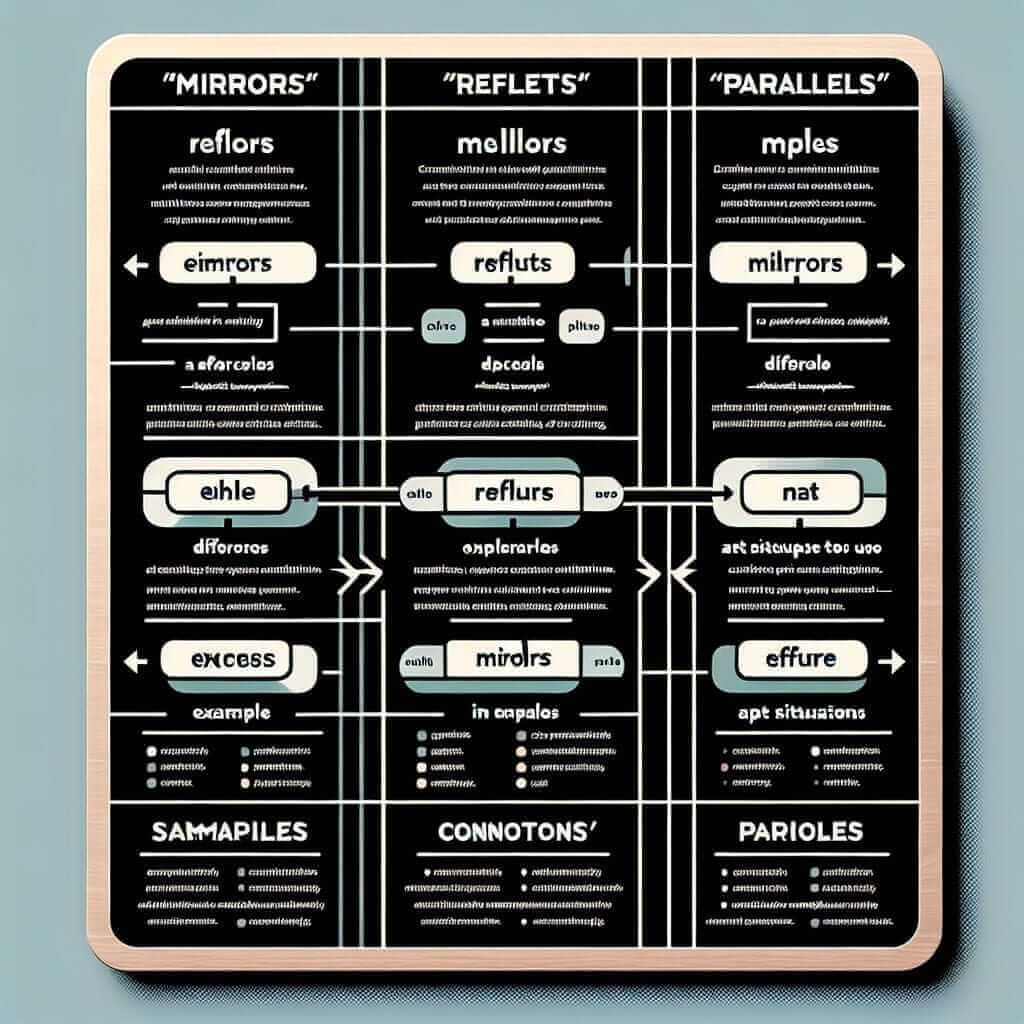The phrase “it mirrors that” might sound sophisticated, but is it really necessary or even correct in the context of IELTS writing? This article delves into the use of this phrase and explores more effective alternatives to help you achieve a higher band score.
Let’s analyze a few examples to understand its potential application:
Example 1: The increase in online shopping mirrors the growing dependence on technology.
Example 2: The novel’s protagonist undergoes a transformation that mirrors the societal shifts of the time.
Example 3: The architect designed the building to mirror the natural landscape surrounding it.
In each of these examples, “mirrors” signifies a reflection or a parallel. It implies a strong similarity or correspondence between two things. However, directly using “it mirrors that” can sound somewhat awkward and repetitive, especially in formal writing like IELTS essays.
Understanding “Mirroring” in IELTS Writing
While “it mirrors that” isn’t inherently incorrect, it lacks conciseness and sophistication—qualities highly valued in IELTS writing. The phrase itself doesn’t appear frequently in high-scoring IELTS essays. Instead, examiners look for a wider range of vocabulary and grammatical structures that convey meaning more effectively.
Alternatives for a Higher Band Score
Here are several alternatives to “it mirrors that” that can significantly enhance your writing:
1. Directly State the Similarity:
- Instead of: “The city’s infrastructure development it mirrors that of many rapidly growing urban centers.”
- Write: “The city’s infrastructure development closely resembles that of many rapidly growing urban centers.”
2. Utilize Synonyms of “Mirror”:
- Reflects: “The film reflects the director’s personal struggles.”
- Echoes: “The poem echoes the sentiments of a lost generation.”
- Parallels: “The protagonist’s journey parallels the historical events of the time.”
3. Employ Comparative Structures:
- Similar to: “The company’s marketing strategy is similar to its competitors.”
- Just as…, so too… : “Just as technology has revolutionized communication, so too has it transformed education.”
- Likewise: “The first experiment showed a positive correlation; likewise, the second experiment yielded similar results.”

Demonstrating Mastery with Examples
Let’s see how these alternatives function within the context of different IELTS sections:
Task 1 (Graph Description):
- Original: “The graph shows that the consumption of fast food it mirrors that of sugary drinks, with both showing an upward trend.”
- Improved: “The graph reveals a striking parallel between the consumption of fast food and sugary drinks, with both exhibiting an upward trend.”
Task 2 (Essay):
- Original: “Some argue that globalization leads to cultural homogenization, and it mirrors that of the Roman Empire’s influence centuries ago.”
- Improved: “Critics of globalization contend that it fosters cultural homogenization, drawing parallels to the Roman Empire’s far-reaching influence centuries ago.”
Common Errors and How to Avoid Them
- Incorrect Verb Tense: Ensure the verb tense aligns with the time frame being discussed.
- Lack of Subject-Verb Agreement: “The data suggests (not suggest) a clear trend.”
- Misplaced Modifiers: Be careful about the placement of words like “only” or “clearly” to avoid ambiguity.
Conclusion
While “it mirrors that” isn’t grammatically wrong, it lacks the nuance and sophistication expected in high-scoring IELTS writing. By embracing the alternatives and examples provided, you can elevate your language and demonstrate a more profound command of English grammar and vocabulary. Remember, clarity, conciseness, and variety are key to achieving success in your IELTS exam!